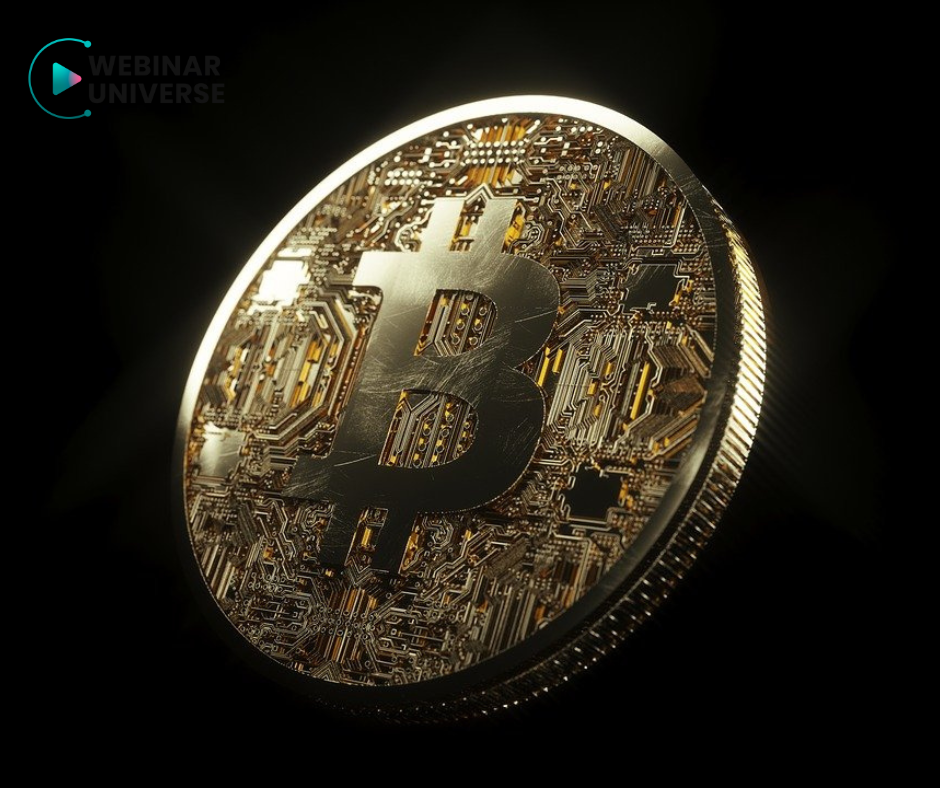Blockchain vs Bitcoin
Blockchain technology is a key element that has enabled the creation of Bitcoin. With its unique properties of decentralisation, security and transparency, blockchain became the ideal solution for the creators of Bitcoin, who wanted to create a currency that is free from interference from governments and central banks. But how exactly did Bitcoin's creators use blockchain technology? To understand this, it is helpful to know what blockchain is and how it works.
- What is blockchain?
Blockchain is a specific type of database, characterised by the decentralised storage of information and the protection of this data through the use of cryptographic technology. Each block in the chain contains a set of transactions that are permanently stored and cannot be altered or deleted. This makes blockchain extremely secure and resistant to any kind of tampering. Online learning opens up more opportunities to expand your knowledge, so why not take the online training on the Webinar Universe platform.
- How does bitcoin use blockchain?
Bitcoin, as the first cryptocurrency, uses blockchain technology to carry out and record transactions. When a user decides to send bitcoins, the operation is recorded in a specific block, which in a further step is attached to an existing blockchain. Each transaction is verified by a network of users, called miners, who use their computing power to solve complex mathematical problems and add a new block to the chain.
In this way, Bitcoin is able to provide the transparency, security and immutability of transactions that are key features of cryptocurrencies. It is blockchain technology that has enabled the creation of Bitcoin and other cryptocurrencies that have transformed the way we conduct financial transactions.
There are many courses on today's technology including Blockchain on the Webinar Universe training platform. It is worth signing up for a selection of training courses on Webinar Universe and expanding your information on Blockchain.

Blockchain vs. Ripple
Ripple is both a digital currency (XRP) and a payment technology. The Ripple system is designed to provide fast, secure and cost-effective transactions internationally. This is particularly important for banks and financial institutions that often need to conduct large international transactions. Ripple, like Bitcoin, is a cryptocurrency based on blockchain technology. However, the creators of Ripple have taken it a step further, refining and adapting the blockchain technology to the specific needs of their system. But how exactly does Ripple differ from Bitcoin and what improvements have its creators made?
- How does Ripple use and enhance blockchain technology?
Like Bitcoin, Ripple uses blockchain technology to record transactions. However, unlike Bitcoin, Ripple does not rely on a network of miners to verify transactions. Unlike others, Ripple uses a unique consensus algorithm that enables transactions to be completed more efficiently and effectively. Additionally, Ripple has introduced the concept of 'gateways', which act as entry and exit points to the Ripple network. Users can deposit money into a gateway, which then issues a corresponding amount of XRP. These XRPs can then be sent to another gateway and converted into another currency. This makes Ripple not only a cryptocurrency, but also a currency exchange system. Ripple is an example of how blockchain technology can be adapted and enhanced to meet specific needs. With its unique solutions, such as the consensus algorithm and gateways, Ripple is able to provide fast, cheap and secure international transactions. This shows how versatile and flexible blockchain technology can be, and how it can be used to solve different problems in different sectors. You can also get more training in this area by learning online through the Webinar Universe training platform. It offers the acquisition of the latest information in various areas of technology.
- Blockchain vs Ethereum
Ethereum, like Bitcoin and Ripple, is a cryptocurrency based on blockchain technology. However, Ethereum introduces several unique innovations that greatly expand the capabilities of blockchain. But how exactly does Ethereum differ from Bitcoin and Ripple, and what improvements have its creators made?
What is Ethereum?
Ethereum is a blockchain platform that enables the creation and launch of so-called smart contracts, or smart contracts. These are programmes that execute defined actions automatically as soon as set criteria are met. Ethereum additionally has its own unique digital currency, called Ether (ETH).
- How does Ethereum use and enhance Blockchain technology?
Like Bitcoin, Ethereum uses blockchain technology to record transactions. However, Ethereum goes a step further by enabling the creation and running of smart contracts on its platform. This means that Ethereum is not just a cryptocurrency, but also a platform for decentralised applications (DApps). Ethereum smart contracts are programs that automatically perform certain actions when certain conditions are met. For example, a smart contract can automatically transfer money from account A to account B when certain conditions are met. This opens up many new possibilities, such as decentralised financial applications, games, voting systems and much more.
Blockchain vs Stellar
Stellar is a blockchain platform that ensures international transactions are carried out efficiently and cost-effectively. Stellar also has its own cryptocurrency, called Lumens (XLM). Stellar's goal is to give everyone in the world access to reliable, low-cost financial services - whether they have access to the traditional banking system or not.
- How does Stellar use and enhance Blockchain technology?
Like Bitcoin and Ripple, Stellar uses blockchain technology to record transactions. However, Stellar introduces several unique innovations that make it more efficient and adaptable to international transactions. The Stellar Consensus Protocol (SCP), which is one of the fundamental innovations introduced by Stellar, is a unique consent protocol. Unlike Bitcoin, which relies on a costly and time-consuming digging process, SCP allows transactions to take place quickly and cheaply.
Additionally, Stellar allows for the creation of so-called 'anchors', which are similar to 'gateways' in Ripple. Anchores are trusted entities that can issue and manage assets on the Stellar blockchain. This means that Stellar can handle not only its own cryptocurrency (XLM), but also other assets such as dollars, euros, gold and other cryptocurrencies.

Blockchain vs other cryptocurrencies
Blockchain, although best known for its use in Bitcoin, is a technology that has found its way into many other cryptocurrencies. Each of these cryptocurrencies has introduced its own unique innovations that have contributed to the development and evolution of blockchain technology.
- Innovations in other cryptocurrencies
Many other cryptocurrencies, such as Litecoin, Dash, Zcash and many others, have introduced their unique innovations to blockchain technology. Litecoin, for example, has introduced faster block generation times, allowing for faster transactions. Zcash, on the other hand, has introduced advanced cryptographic techniques that enable more private transactions.
These and many other innovations have contributed to the development of blockchain technology, making it more versatile, efficient and secure. They show how different cryptocurrencies can influence the development of blockchain technology by introducing new ideas and solutions. Blockchain technology, although best known for its use in Bitcoin, has many other applications. With the innovations introduced by various cryptocurrencies, blockchain has become more versatile, efficient and secure. As the technology continues to evolve, new applications can be expected to emerge that can currently only be imagined. If someone wants to expand their knowledge of cryptocurrencies, they can take advantage of the opportunities offered by the training platform, where interesting courses on cryptocurrencies and technology are available.
